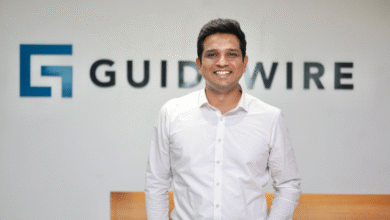
Global Capability Centres (GCCs) are built to deliver performance around the clock. Designed to serve global teams and functions across time zones, GCCs operate at high intensity, with rotating shifts, digital delivery pressures, and international collaboration that often stretches into odd hours. However, beneath this 24/7 productivity lies an invisible cost: the steady erosion of employee health.
With that idea in mind, it’s fair to state that wellness in GCCs is no longer a perk. It’s the new performance infrastructure. A resilient, high-functioning workforce needs more than just skills. It requires rest, nourishment, movement, and mental clarity.
The Hidden Stressors of 24/7 Work
Working in shifts misaligns the body’s circadian rhythm, leading to poor sleep, brain fog, and metabolic/hormonal disruption. Our bodies rely on rhythms, and hormones like melatonin play a crucial role in that internal clock. When your sleep schedule keeps shifting, especially with night shifts, your body struggles to release melatonin at the right time. That makes it harder to fall into deep, restorative sleep. And sleep isn’t just downtime, it’s when your body resets. It balances your ghrelin, a hormone responsible for giving you hunger signals, regulates key hormones, and sharpens your mind. But when professionals run on 4–5 hours of broken sleep night after night, the brain doesn’t recover; it simply copes.
It stays in survival mode, not performance mode. It begins to crave high-energy foods and partitions those foods into fat storage rather than using them as energy, thus creating a vicious cycle of eating high-calorie foods that are poor in nutrient quality, such as fried and packaged foods.
A lack of sleep invariably leads to unhealthy eating habits. Odd working hours promote high-sugar, high-fat snacking, not out of choice, but fatigue. Research shows night-shift workers are more prone to insulin resistance and weight gain, partly because their biological clocks aren’t wired for digesting heavy meals at night. Add long periods of sedentary behaviour to this mix, and we see a worrying rise in lifestyle-related health risks.
What often goes unnoticed is the emotional cost — isolation, chronic stress, and burnout. When your workday begins at odd hours and ends when others wake up, the disconnection isn’t just social; it’s psychological.
A 360° Approach to Workplace Wellness
To perform sustainably, GCC workers need a holistic health blueprint, not just step challenges or annual check-ups. I call it the human health tripod:
1. Nourishment.
2. Movement.
3. Rest.
Neglect anyone, and performance falters. You can think of it as a tripod, which is sturdy only when all three legs are balanced well.
Companies operating in the GCC space should nurture this foundation by weaving health into everyday workflows:
- Providing nutritious options during night shifts.
- Encouraging stretch breaks or walking meetings.
- Designing shift schedules that allow proper recovery.
- Creating quiet spaces to unwind post-shift.
However, the fundamental shift occurs when wellness transitions from an initiative to an instinct, that is, when employees no longer need motivation, but rather a habit.
The Power of Tiny, Consistent Change
The science is clear: change that lasts doesn’t start big. It starts small, with atomic habits built into the routine. No overhaul needed.
For a GCC professional, that might look like this:
- Replacing one nightly fried snack with a protein-rich bite.
- Standing up to stretch and walk every time you hit ‘send’ on an email.
- Dimming lights 30 minutes before bedtime to wind down the brain.
Small steps reduce friction. Over time, these rituals stack up to protect energy, focus, and health, even in the most demanding environments.
Wellness as a Strategic Lever
Companies that invest in wellness don’t just reduce absenteeism — they boost retention, engagement, and output. Studies show organisations with strong wellness cultures enjoy significantly higher productivity, morale, and consequently better employee retention.
More than anything, people want to feel seen, not as job titles or resources, but as humans with real physical and emotional needs. In today’s talent-driven world, that kind of empathy isn’t just nice to have — it sets companies apart. And it starts at the top. Leaders can’t simply roll out wellness programs and expect them to stick. Talk openly about mental health with your team. Take that walk together instead of sitting in another meeting room. When leaders embody the message, the culture shifts, and people begin to believe that well-being truly matters here.
In GCCs, the future of performance is not just smarter — it’s healthier.
If we want employees to show up at their best, they need to feel their best — physically, mentally, and emotionally. By grounding wellness in routine, science, and empathy, we not only create a healthier workplace but also foster a more inclusive and supportive environment that feels more human.
This article is part of GCC Pulse’s ongoing initiative to spotlight ‘health and wellness’ as strategic priorities within Global Capability Centres. As the GCC ecosystem continues to evolve, we believe that nurturing employee well-being is not just a moral imperative, but a business-critical differentiator. Through expert voices, lived experiences, and actionable insights, we aim to help leaders build healthier, more human-centric workplaces.







